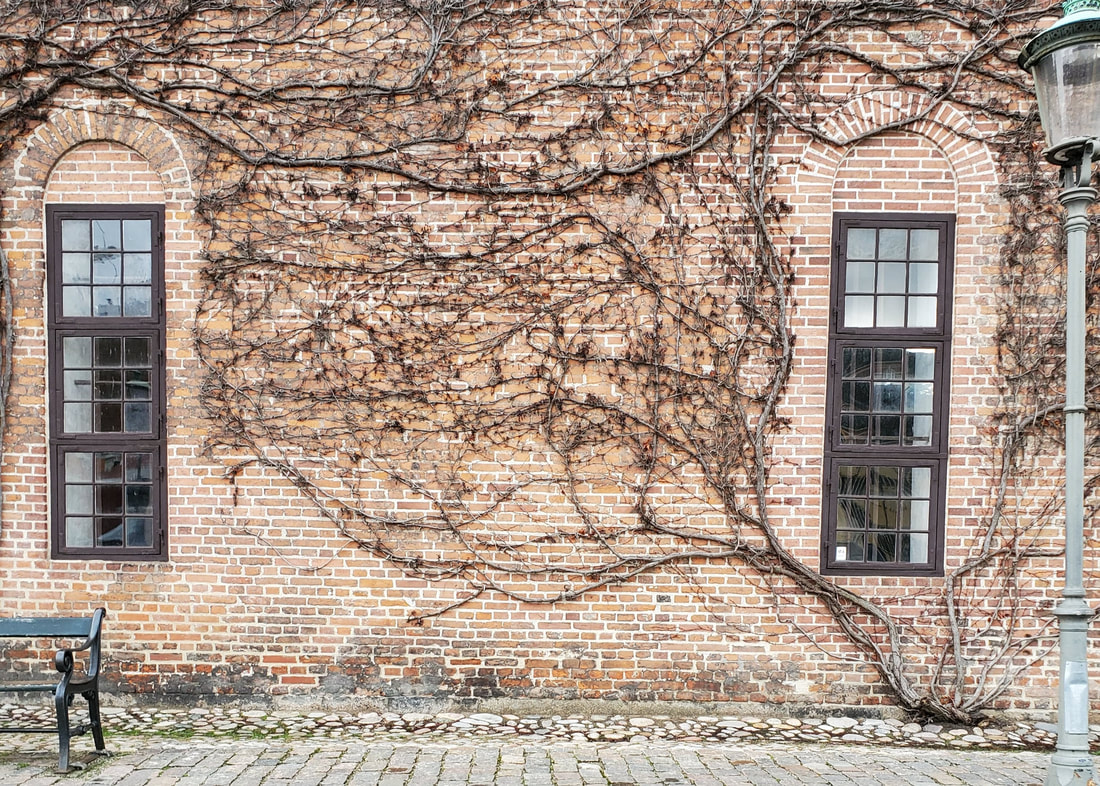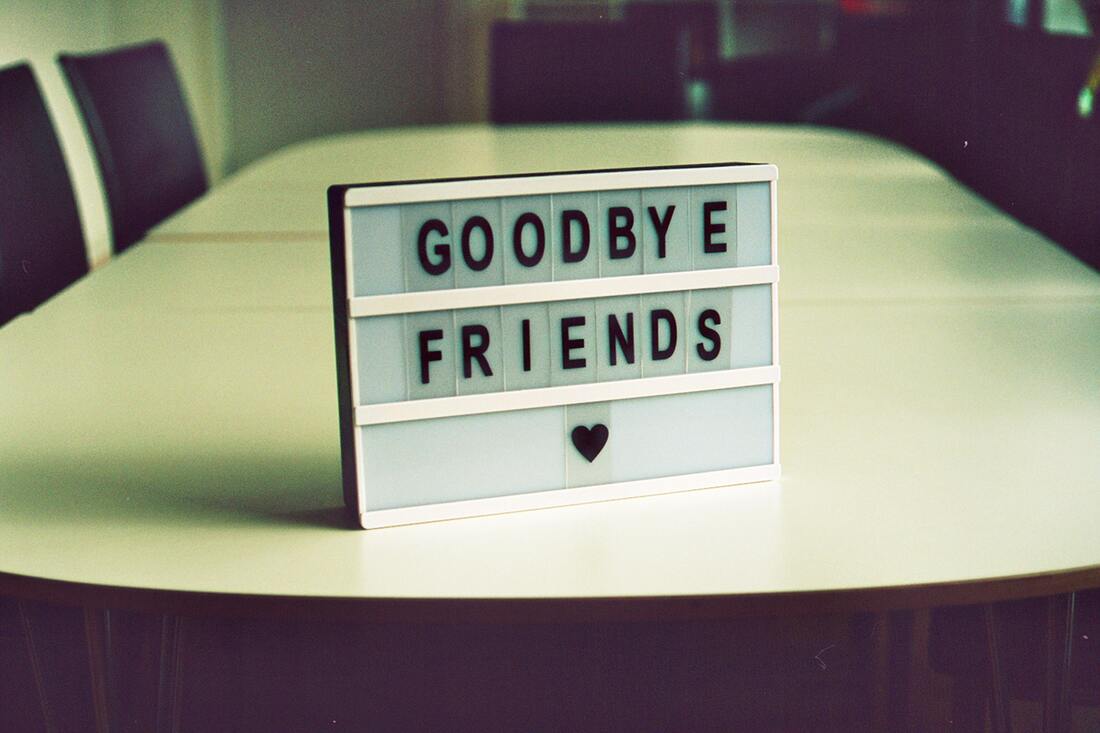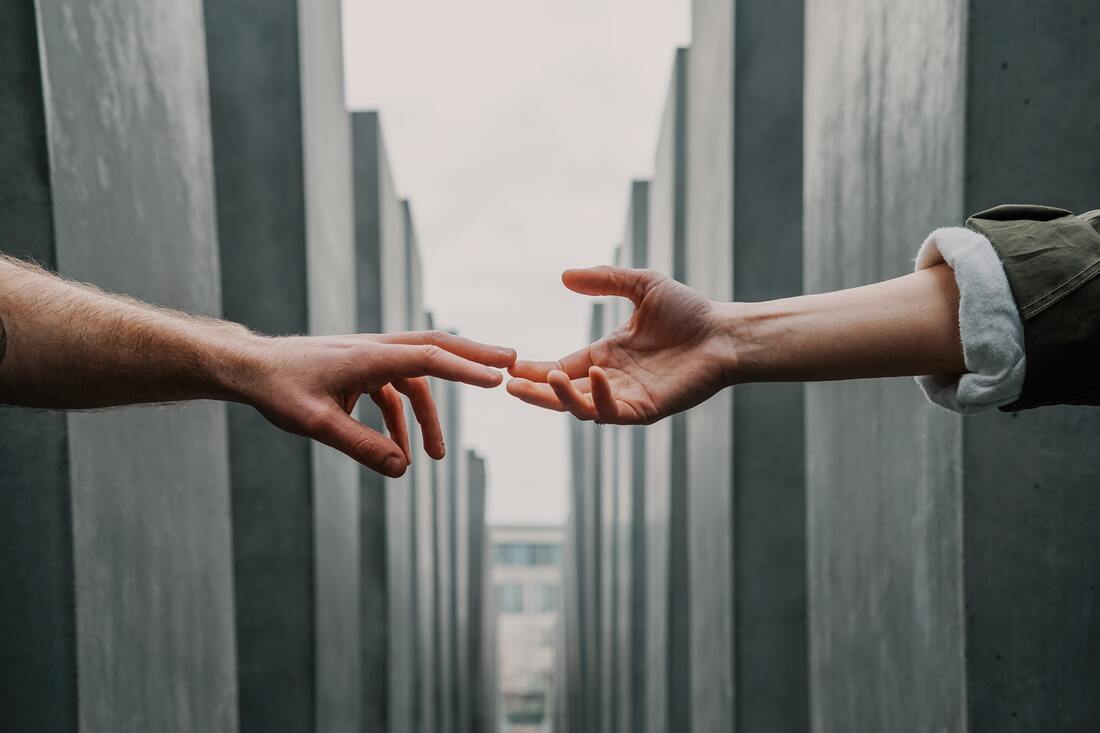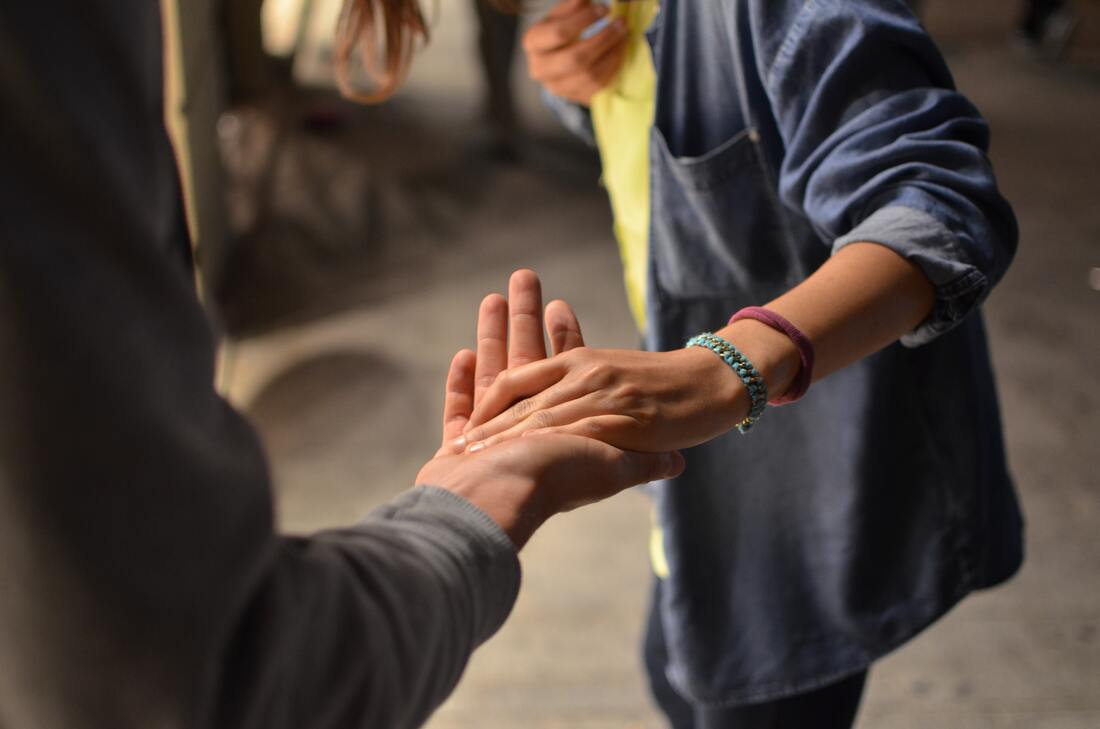|
This post was originally posted on 12/26/16 on my previous blog.
It was uncomfortable and exhausting and hard, and a profoundly rich and sacred opportunity. At some point in the midst of all of this, I had a thought: There is something so intimate about saying goodbye. We are constantly saying goodbye to people: the cashier at the grocery store; a partner as they head off to work in the morning; a coworker as we leave the office for the day; a friend at the end of a coffee date; and so on. But in many cases, we don't really say goodbye. Often, we disconnect from the other person and ourselves before we physically part. Even if we say the word “goodbye” (and often we don't, in exchange for something more casual), most of the time the tone and feeling of what we are saying is really this: see you next time. But the thing is: We don't know if there will be a next time. We don't ever know--not for sure. But this reality can be too frightening and overwhelming to face every time we part with a loved one. Maybe we touch this Truth lightly; maybe we are vaguely haunted by an indistinguishable trace of it--a passing feeling we recognize, but can't quite articulate; maybe it's miles outside our awareness. As I was saying goodbye to students and coworkers, what struck me was how profoundly different a goodbye feels when you know it is really goodbye. Sure, if we want to get technical about it, my goodbye wasn't absolute and final. I am still teaching at the school once a week so I knew I would still see many coworkers and some students for sure. And there are ways I may end up crossing paths with some people again in the future. And yet, for many people I said goodbye to--especially students--for all intents and purposes this was really and truly goodbye. So, this left us with a couple of options: 1) We could play it safe by hiding behind and exaggerating the probability of these possible future runs in. We could say things like, "Maybe I'll see you in the hall!" or "I'm sure our paths will cross again!" or "I'll see you at graduation!" And in some cases that is exactly what we did.
We leaned into rather than away from the inherent vulnerability of the exchange. We let it be intimate. We let it be loving. We said things like, "you mattered to me" and "I'm so glad I met you." We said thank you. It was intimate and sweet and heart-opening, and it brought me to a deeper level of being able to really sit with another human and myself. I was meeting with one young man for what would likely be the last time. At one point during the conversation, he told me he felt I was holding back. He said he thought I wasn't saying everything I wanted to say because I know that he gets uncomfortable with emotions. He told me it was OK, that I didn't have to protect him. I was quick to disagree. "I'm not holding back," I said with a smile. Later, I realized he was right--partially anyway. I was holding back, but not because of him. I was holding back because of me. I was protecting myself from the intimacy of the goodbye. I wasn't aware I was doing that until he said it, but he must have sensed it. He called me on it and I was grateful. So I gave it another go. This time I brought myself more fully into the exchange. I showed up and let him know how I felt not just by saying the words, but by allowing myself to feel them. In the Spring of 2011, after a long journey with cancer, my uncle decided to say a final goodbye to the world on May 7th with the help of Compassion and Choices and thanks to the Death with Dignity Act. My aunt and uncle moved to Portland the previous winter to have easier access to alternative treatment and organic food. That meant that my husband and I had the privilege of spending five months with them during this difficult time. It also meant that we were only a couple of miles away when it was time to say goodbye. May 7th was a Saturday. The Thursday before that, my husband and I went to visit my uncle. It would be our last visit. I remember feeling so anxious on the way to their apartment. What would it be like? It seemed so awkward and awful. What would we say? What would we do? He was going to die in exactly two days; this was certain. God, it just was too much. But once we arrived, it was an entirely different story. Anticipating the visit was unbearable; being there was easy. There were sad moments, to be sure. But also, we ate pizza and held hands and laughed without restraint at my uncle's off-color jokes. There was nowhere to hide, no more time or room (or point) for defense mechanisms or protective strategies. There was just love. At some point, when he was falling asleep, we knew it was time to leave and let him rest. So we said goodbye. I will never forget walking out that door and looking back knowing it would be the last time I would see his sparkling eyes and impossible smile.
It's understandable that we tend to be casual with our goodbyes. It's difficult to constantly look squarely at the impermanence of all things. I bet even the Buddha said "see you later" once in a while. Then there is the problem of being busy. When we are always rushing from one place and task to another, it can be difficult to slow down long enough to remember the preciousness of life and those we love. And yet… Who among us is not painfully aware of how quickly life can be taken from us? If we have managed to avoid directly experiencing this particularly brutal lesson, surely we know one, two, or a dozen people who were not as fortunate. A neighbor whose wife died of a stroke. A friend whose husband had a heart attack. A coworker whose mother went to the ER and never came out. A cousin whose brother died in a car accident. These stories happen every day. And for a moment or a week after we hear them, we squeeze our loved ones a little bit tighter; we remember to say I love you; we work through the argument so we can fall asleep with arms around each other. And then, we forget again. We retreat. We return to habits and routines, to social conventions and protective strategies. What if we were willing to hold the Truth of the fragility of life just close enough to allow us to always remember what is most sacred? This doesn't have to be morbid. We needn't weave it into a shroud that covers up our eyes making things dark and heavy. That is not necessary or useful.
0 Comments
Your comment will be posted after it is approved.
Leave a Reply. |
authorfara tucker (she/her) is a poet, copywriter,life cycle celebrant, former therapist, and current therapy client. archives
September 2022
categories |





 RSS Feed
RSS Feed